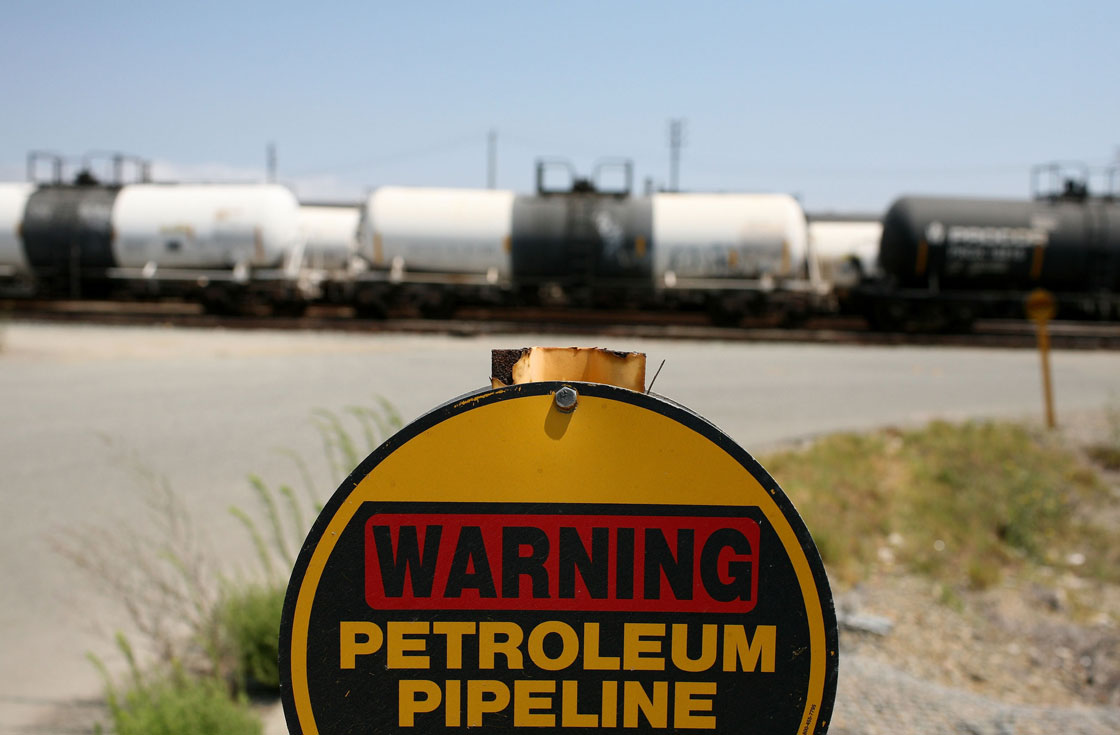
Thirteen confirmed dead, and 37 more missing in a rural Quebec cottage town serve as the starkest — and grimmest — figures yet in a debate over what poses the bigger threat to the public and environment: shipping crude by rail or pipeline.
Experts said Monday the tragedy in Lac-Megantic arms pipeline proponents with a strong if heart-wrenching example of the dangers of rail shipments to press their case to the public as well as lawmakers in the United States.
Stiffer regulation is also almost certain to emerge from the disaster.
“If I were looking at this from one technology compared to another, the pipeline will emerge ahead from this,” Michael Moore, a professor of energy economics at the School of Public Policy at the University of Calgary, said.
“Pipeline companies will use this to point out the advantages and safety records of pipelines,” Bob Schulz, a professor at the Haskayne School of Business, told Bloomberg News.
- Gas prices surge in some parts of Canada. What’s causing pain at the pumps?
- Roll Up To Win? Tim Hortons says $55K boat win email was ‘human error’
- Ontario premier calls cost of gas ‘absolutely disgusting,’ raises price-gouging concerns
- Netflix beats subscriber targets, but revenue falls short of forecast
“It gives those companies an additional point to support their argument.”
Once considered a costly but necessary interim solution to pipelines that were in the works, Canadian energy firms have come to rely on rail-car transportation as those projects have been held up.
As new pipelines, like TransCanada Corp.’s controversial Keystone XL, have faced delays because of safety and environmental concerns, crude shipment by rail-car has surged.
In 2008, about 9,500 carloads of oil were shipped via rail in the United States, according to the Association of American Railroads. Last year, that figure was 233,811. Each car carries about 800 barrels, experts suggest.
Growing supply among producers in Western Canada and elsewhere on the continent combined with constrained capacity in existing pipeline infrastructure has created a new, multibillion-dollar sub-sector in the rail and energy industries.
Canadian exports of oil travelling into the United States totaled just under 17 million barrels last year, or about two per cent of all Canadian oil exports, according to the National Energy Board.
That amounts to about $1.5 billion worth of the commodity travelling by rail from Canada into the United States. Industry estimates suggest that total has spiked this year and could reach 73 million barrels in 2013 and nearly 110 million barrels by 2014.
Railroads are making big profits from the fast rise in oil shipments, as well.
Canadian Pacific Railway Ltd. has seen its revenue per car climb by double digits this year. And according to Bank of Montreal analysts, as much as 9 per cent of the railway’s profit comes from the shipping of oil now.
Montreal’s Canadian National Railway Co. has also said it expects to double its shipments to 60,000 carloads this year.
The bump in earnings has brought with it controversy, however. CP has had half a dozen smaller scale derailments this year, spilling hundreds of barrels of oil into the environment.
Saturday’s disaster, which was the result of a runaway 72-car train owned by the Montreal, Maine and Atlantic Railway, is likely to see far more stringent rules erected around the shipment of oil by rail, University of Calgary professor Moore said.
“The system has been getting by too long without enough inspection,” Prof. Moore said. “If I was someone in the rail industry I’d worry. There’s going to be a lot more scrutiny and probably the tightening of a lot more regulation.”
In a statement, the company said the train had been parked outside Lac-Mégantic for the night with no crew on board. Its locomotive had been shut down, “which may have resulted in the release of air brakes” that were “holding the train in place,” the statement said.
The disaster comes as Washington mulls whether to approve or reject the Keystone pipeline, which has become a lightning rod for both proponents and critics of oil shipped along vast networks of buried pipes spanning thousands of kilometers.
Pipeline supporters argue accidents are far less likely compared to rail transport. Critics charge that pipeline accidents can be more devastating and leak huge amounts of crude into the environment.
Prime Minister Stephen Harper, one among many Canadian politicians angling for an approval of the Keystone line, said in May in New York, a rejection of the project would mean higher shipping volumes by rail, a method that is “more environmentally challenging.”
A recent U.S. State Department analysis of the pipeline plan concluded that if the pipeline was rejected, oil sands producers would instead turn to railways for shipments to the United States.


Comments